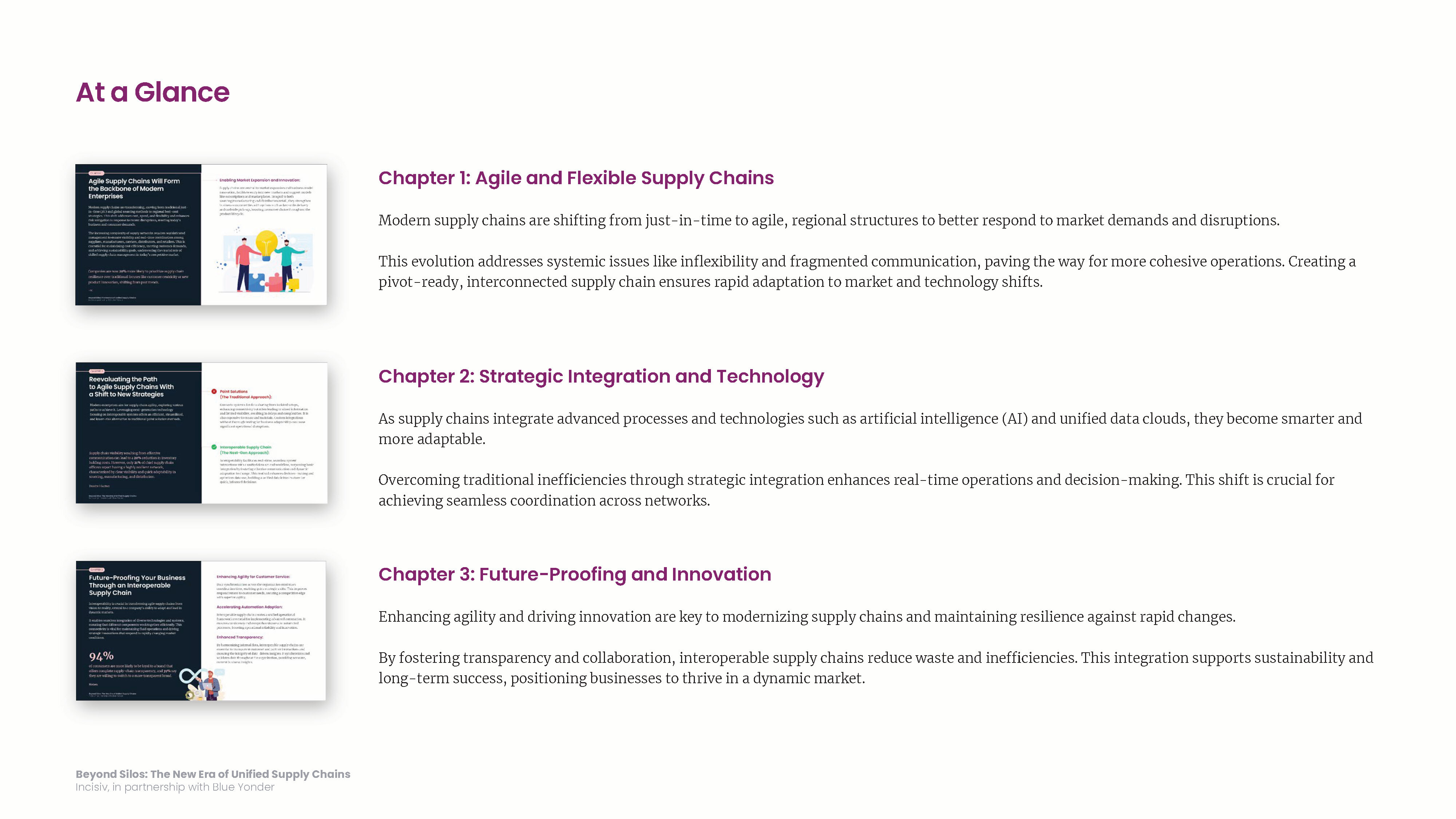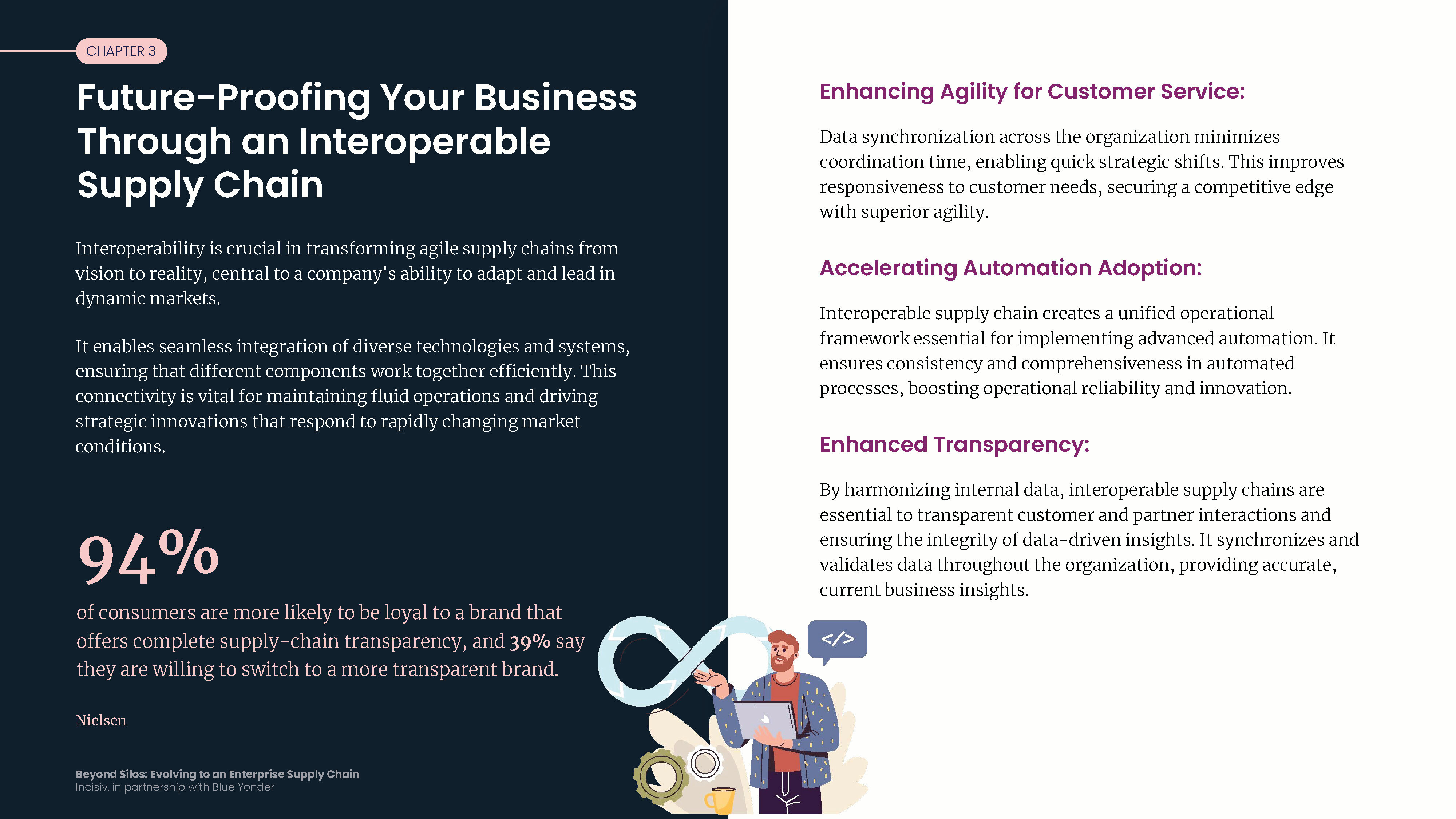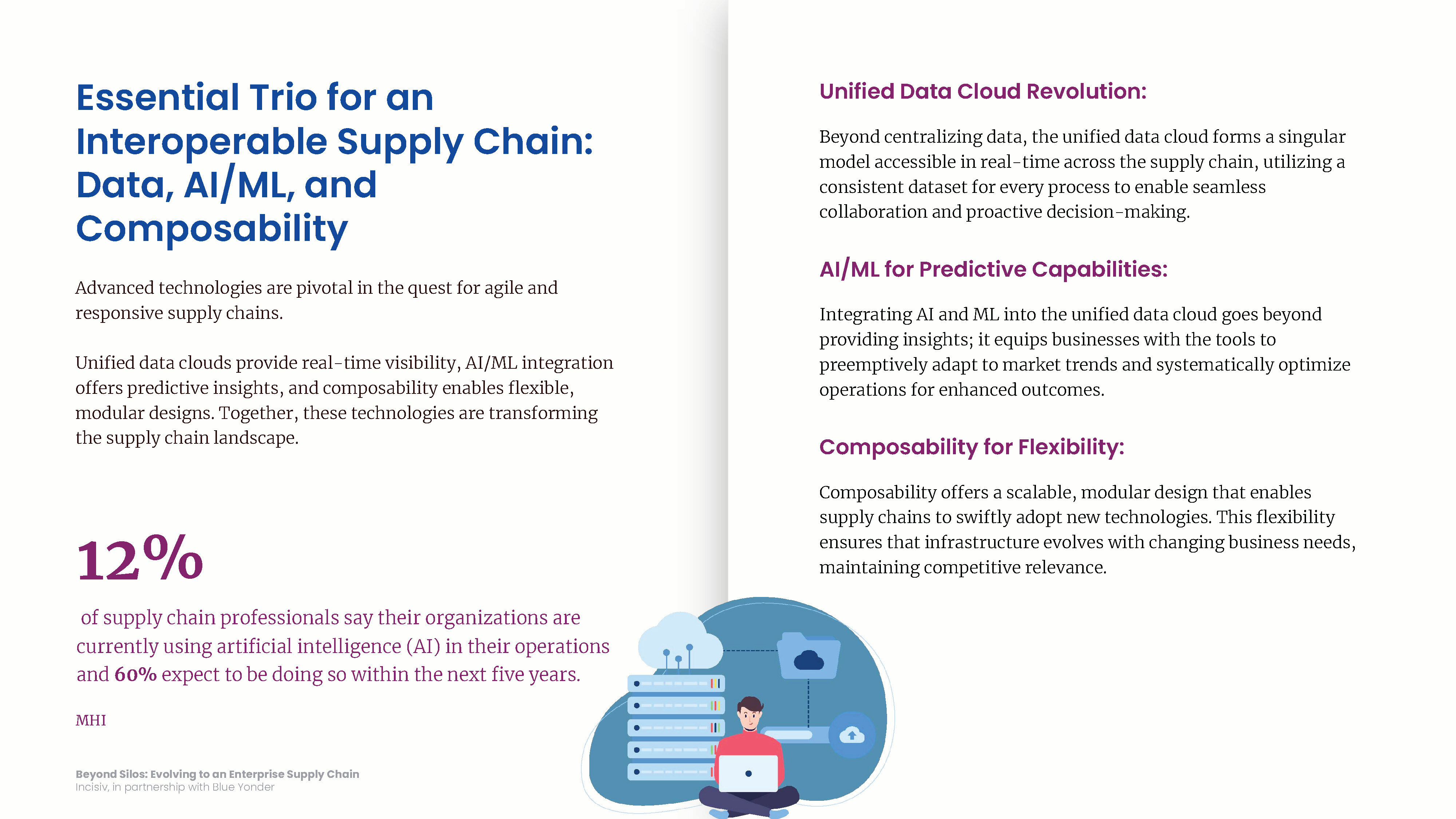Industry Brief
Beyond Silos: Evolving to an Enterprise Supply Chain
Q2, 2024
Modern supply chains face systemic challenges as traditional just-in-time models and isolated system integrations prove inadequate for today's dynamic market demands. Rigid structures, disconnected communication channels, and limited visibility across operations create inefficiencies that prevent rapid adaptation to disruptions and market shifts. Legacy integration approaches requiring extensive custom coding lead to high operating costs, fragmented decision-making, and missed business opportunities. With only half of supply chain professionals confident in their operational stability, organizations struggle to achieve the agility necessary for maintaining profitability, driving innovation, and meeting evolving customer expectations in an increasingly complex global environment.
This report examines how interoperable supply chains can transform organizational agility through seamless integration, unified data models, and real-time coordination across enterprise networks. It explores the shift from traditional point solutions to next-generation approaches that enable instantaneous information flow, enhanced decision-making capabilities, and dynamic adaptability through unified data clouds, AI and machine learning integration, and composable architectures. The analysis reveals how interoperability eliminates silos, accelerates automation adoption, enhances transparency, and future-proofs businesses by creating pivot-ready supply chains capable of responding cohesively to challenges while optimizing operations across the entire organization.
FOUR KEY B2C COMMERCE IMPERATIVES
 Incisiv
Incisiv
Here’s a preview of the report. The full report is available for free download via the form below.








As consumers continue to reshape their expectations,
enterprises must contend with a uniquely challenging landscape.
The consumer technology landscape is forever changing.
From Pinterest to TikTok, WeChat to Instagram, new experiences can rapidly gain consumer adoption and relevance.

From augmented reality to voice, smartwatches to chatbots, consumers are constantly embracing new interaction paradigms.
Commoditized convenience is eroding loyalty and margin.
Consumers expect convenience. If you can't deliver it, they'll go elsewhere - e.g. next day shipping becoming the new standard.
Walmart will reportedly lose USD 1 billion on eCommerce revenue of USD 21 billion this year as it faces challenges in its bid to complete against Amazon – from trouble integrating its DNVB acquisitions to impact on margin from its next-day delivery operations.
Consumers value experiences that are curated to fit their lives better.
They want to engage, be served, and transact at their time, their pace, their place. They have little patience, infinite choice and the freedom to swipe left at the slightest hint of friction.





